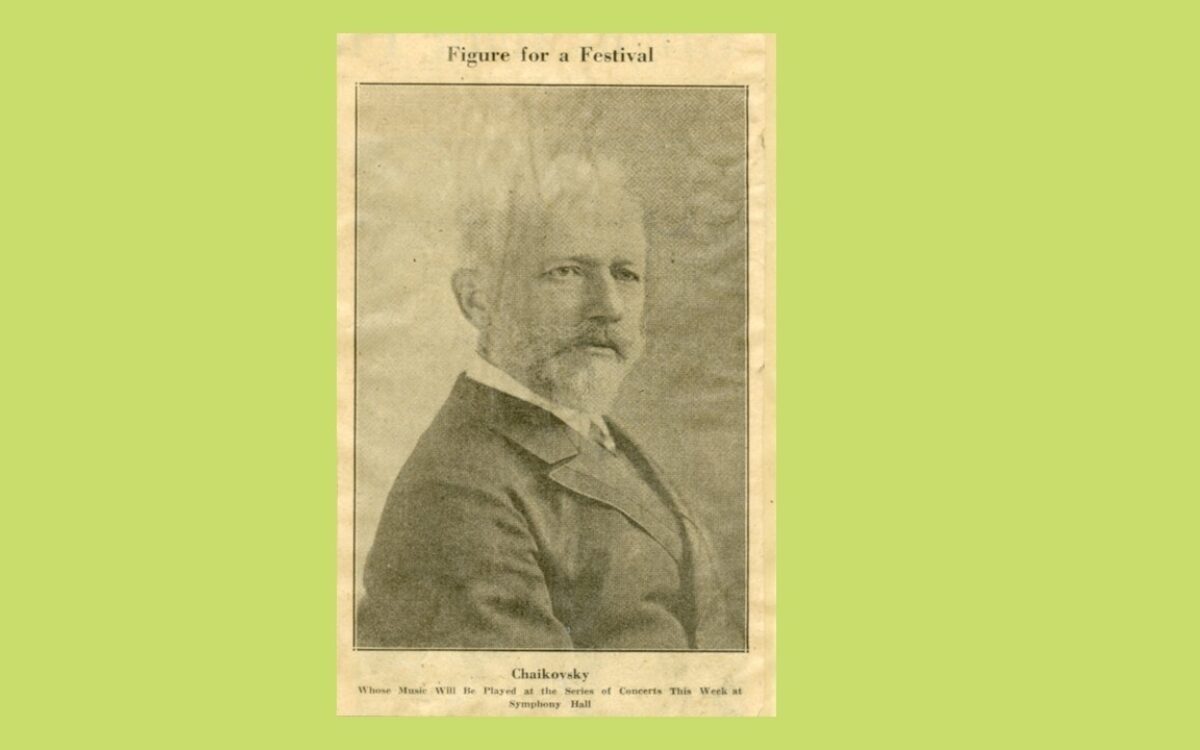Koussevitzky and Tchaikovsky

Tchaikovsky - Francesca da Rimini, performed by the BSO and conducted by Serge Koussevitzky
Tchaikovsky - Tatiana’s Letter Scene from Eugene Onegin, performed by the BSO featuring soloist Marina Koshetz and conducted by Serge Koussevitzky
Tchaikovsky - 1812 Overture, performed by the BSO and conducted by Serge Koussevitzky
Serge Koussevitzky was known by his contemporaries as a definitive interpreter of Tchaikovsky. In April 1934, Koussevitzky presented a 5-day festival of Tchaikovsky’s music, including both orchestral and chamber concerts, and in August 1940, he dedicated a weekend of Tanglewood performances to the 100th anniversary of the composer’s birth. This episode’s repertoire highlights Koussevitzky’s treatment of Tchaikovsky’s programmatic side in tales of love and war: a symphonic tone poem tells the story of Francesca da Rimini from Dante’s Inferno, depicting both the whirlwind in which she is tortured and the fervor of the love affair for which she was punished; an operatic aria from Eugene Onegin reveals love-spurned Tatiana contemplating an opportunity for passion with her former infatuation; and a concert overture recounts the triumph of Russian forces against Napolean and his invading French army.
Koussevitzky first performed the tone poem Francesca da Rimini with the BSO during his first season as part of an all-Tchaikovsky program held to raise money for the BSO’s pension fund. The work’s genesis is partially due to some light professional competition. After reviewing Franz Liszt’s Dante Symphony for Moscow’s Russian Register and finding the piece too “bombastic,” Tchaikovsky shortly afterwards tried his own hand at setting Francesca da Rimini’s tragic fate to music. Koussevitzky seemed to agree with Tchaikovsky, as he never performed Liszt’s version during his tenure with the BSO. He did, however, conduct Tchaikovsky’s version 23 times with the orchestra, giving it more performances than any other Tchaikovsky work besides the later symphonies (nos. 4-6), and he recorded it with the BSO for the RCA Victor label on April 19, 1946.
Based on a verse novel by the great Russian writer Alexander Pushkin, Tchaikovsky’s opera Eugene Onegin tells the story of an arrogant young man who comes to regret his headstrong actions. Koussevitzky programmed its best-known passage, Tatiana’s letter scene infrequently (8 times in total), making this radio broadcast especially unique. Indeed, Marina Koshetz was 1 of only 2 sopranos with whom Koussevitzky would perform the work with the BSO. Koshetz (1912-2000) was a Russian-born American opera and film star, who had performed the role of Tatiana with the San Francisco Opera’s 1941 production of Eugene Onegin. Part of a Tuesday series on ABC, this broadcast was aired from Connecticut College’s Palmer Auditorium in New London. Koussevitzky never recorded the letter scene commercially with the BSO.
The 1812 Overture appeared frequently on programs of the WWII and postwar years during Koussevitzky’s tenure (9 of 13 performances were between 1941 and 1948). Koussevitzky conducted the overture at Boston Garden as part of a December 1944 War Bonds concert (services were donated by the BSO and Koussevitzky to raise money for American efforts in World War II). After a hiatus from full participation in the Berkshire Music Festival, the BSO returned to western Massachusetts in full force during the summer of 1946. This radio broadcast was part of that buoyant postwar revival. Koussevitzky never recorded the 1812 Overture with the BSO.
Koussevitzky 150
This story was created as part of the Koussevitzky 150 celebrations at Tanglewood, celebrating the 150th anniversary of Serge Koussevitzky's birth and the 100th anniversary of his appointment as the BSO's first Music Director.
Learn More
